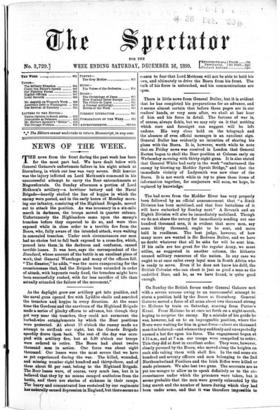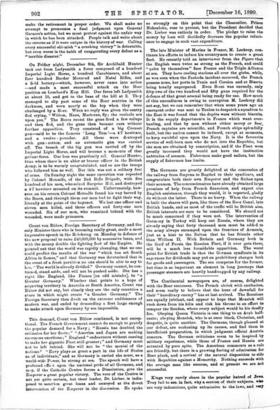On Sunday the British forces under General Gatacre met with
a severe reverse owing to an unsuccessful attempt to storm a position held by the Boers at Stormberg. General Gatacre moved a force of all arms about two thousand strong to Molteno by train on Saturday, starting from Patter's Kraal. From Molteno he at once set forth on a night march, hoping to surprise the enemy. By a mistake of his guide he was, however, led on to an impregnable position, where the Boers were waiting for him in great force—about six thousand men it is believed—and whence they suddenly and unexpectedly opened a hot fire upon his force. The engagement began at 415 a.m., and at 7 a.m. our troops were compelled to retire. This they did at first in excellent order: They were, however, closely pursued by the Boers, who moved along the heights on each side raking them with shell fire. In the end some six hundred and seventy officers and men belonging to the 2nd Northumberland Fusiliers and the Irish Rifles were killed or made prisoners. We also lost two guns. The accounts are as yet too meagre to allow us to speak definitely as to the cir- cumstances under which the prisoners were taken, but it seems probable that the men were greatly exhausted by the long march and the number of hours daring which they had been under arms, and that it was therefore impossible to
make the retirement in proper order. We shall make no attempt to prononnoe a final judgment upon General Gatacre's action, but we must protest against the unfair way in which he has been attacked. People talk and write about the reverse as if it were unique in the history of war. Calling every successful skirmish " a crushing victory" is detestable, but even worse is the habit of exaggerating every defeat as a " terrible disaster."











































